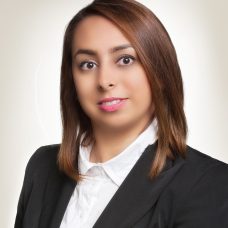The 8th IEEE International Conference on Data Science and Advanced Analytics Tutorial on
Deep Learning for Data Fusion
October 6, 2021
Overview
Data fusion techniques are widely used in many real-world data science applications
such as autonomous systems, remote sensing, video surveillance and military. The
objective of using data fusion in multi-sensor environments is to combine the data
provided by the multiple sensors to obtain a lower detection error probability and a
higher reliability. The data can be obtained from the same sensor with several capturing
parameters or multiple sensors.
This tutorial presents the recent advances in deep learning data fusion specifically for
three main computer vision tasks: classification, detection and segmentation. We will
illustrate this taxonomy through relevant examples from the literature and will
highlight existing open challenges and research directions that might inspire attendees
to embark in the fascinating and promising area of deep learning-based data fusion
method.
Outline
This tutorial is of half-day duration (4 lecture hours). The outline of the tutorial
include:
- Overview of well-known DL techniques for data fusion which can be classified
into three nonexclusive categories: (i) data association, (ii) state estimation,
and (iii) decision fusion. (40 min) - A general introduction about modern sensors such as camera, radar, Li-DAR and
etc, and their advantage and disadvantage (30 min) - Overview of the recent advances in data fusion architectures: early, middle and
late fusion for three main computer vision tasks (40 min) - Overview of Convolutional Neural Network (CNN) based architectures for
image fusion (color-color, color-infrared) and image-LiDAR fusion (60min) - Applications (40 min):
-Autonomous vehicles: especially we will describe our research out-comes
about data fusion methods in this application
-Remote sensing
-Video surveillance - Discussion about the challenges and research opportunities for applying DLbased
data fusion for data science (25 min) - Open Questions and Discussions (15 min)
Speakers
1. Fahimeh Farahnakain, University of Turku, Finland

She is currently an adjunct professor (docent) in the Algorithms and
Computational Intelligence research Lab, Department of Future Technologies,
University of Turku, Finland. Her research interests include the theory and
algorithms of machine learning, computer vision and data analysis methods, and
their applications in various different fields. She has authored more than 30 peerreviewed
scientific publications in these areas. She is a member of the IEEE and
also served in program committees of numerous scientific conferences. She has
served as organizing/program committee member in numerous conferences, and
acted as a guest editor in 5 special issues of scientific journals. She has been the
recipient of many prestigious awards and fellowships such as PoDoCo, Finnish
Culture, Nokia, Ulla Tuominen and etc. More information from her website.
2. Pouya Jafarzadeh, University of Turku, Finland

He received B.S. and M.S. degrees from the University of Turku applied science,
Finland. He is currently pursuing his Ph.D. in Algorithms and Computational
Intelligence research Lab, University of Turku from August 2020. His research
interests include data science, Healthcare application, Artificial Intelligence and
Machine Learning. He has authored peer-reviewed scientific articles. He is a member
of the IEEE and also served in program committees of numerous scientific conferences.
He is a reviewer for over 20 international journals.
Please contact Fahimeh Farahnakian if you have questions.